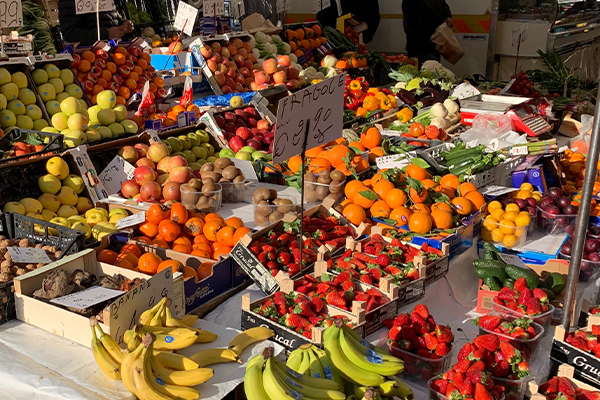Introduction
AusMask is an Australia-based mask designer and supplier. Aiming at providing customers with the best-quality masks, AusMask enjoys its advanced mask filtering technology and aesthetic design concepts to protect people from the negative impacts of polluted air and enables them to have a breath of the clean air with “Australian flora” (“Our story”, 2018). Today, due to the increasingly severe air pollution in China, AusMask has shifted its focus on the Chinese market to meet local people’s demands for masks with best quality, durability and aesthetic appeal.
Though the Chinese market has a large potential size, it is still featured by fierce competition and various risks for a foreign player. For example, in the mask industry, world-leaning mask suppliers such as Pitta Mask, MEO and 02Today and so on have had strong presences in the Chinese market (“Air Pollution Masks Industry”). Therefore, strategic alliance and business collaboration with Chinese local organizations play an essential role for AusMask to enter the Chinese market.
This report identifies potential strategic alliance for AusMask in the Chinese market. Based on the data of the market and the challenges and opportunities that AusMask would face in China, this report gives suggestions on AusMask’s strategic partnerships in China market.
Business Challenges for AusMask
According to the 2017Air Pollution Masks Industry Market Research Report, mask market is expected to grow rapidly in the upcoming years due to the deterioration of air quality across the globe (“Air Pollution Masks Industry”, 2017). For the Chinese market, since 2012, the pollution mask market increased by 30 percent annually and reached a total value of $650 million in 2016 (“Daxue Consulting”, 2017). However, the overall mask industry, especially in the Chinese market still faces a series of challenges.
The first challenge is the increasing fierce competition of the industry. According to the 2017Air Pollution Masks Industry Market Research Report, the number of multinational manufacturers of air pollution masks has exceeded 40, and the giant players such as 3M and Honeywell accounted for over half of the global market share (“Air Pollution Masks Industry”, 2017). In the Chinese market, a great number of small local manufacturers have emerged, and even in Dadian, a small village in Shandong Province, China, there are over 300 mask processing and manufacturing enterprises (“Daxue Consulting”, 2017).
The second challenge is the lack of value propositions for mask suppliers. Value propositions refer to the promise of value delivered by a brand or a company (Hassan, 2012). Based on a value proposition, a company could effectively design its business strategies to provide customers with values and benefits. However, currently, the mask industry is only focused on its manufacturing and processing capability rather than customer experience and customer satisfaction. As a result, few mask manufacturers or suppliers could develop great brand images to improve customer retention or loyalty.
The last challenge is the disordered channels in the overall industry. Due to the lack of industrial regulation and supervision, the channels of the masks’ materials, filtering techniques, product distribution and retailing are “in a mess” (“Air Pollution Masks Industry”, 2017). Also, the main channel for the mask industry is the longest one, from producer, wholesaler, retailer to consumer, which greatly decreases the distribution efficiency of the industry (Kozlenkova, Hult, and Lund, 2015).
Based on the three challenges of the industry, it is learned that AusMask should seek proper strategic partners in the Chinese market to gain advantages in the fierce competition, enhance its brand image by establishing its special value proposition.
Design and Methodology
Kwon and Lennon (2009) suggested that both positivism and interpretivism are research approaches which could effectively help researchers to investigate issues of business and marketing. Different from positivism which emphasizes objective measurements and statistical analysis of data collection, interpretivism usually uses qualitative approaches such observation and research of concepts from academic fields or journalism to better interpret and understand a phenomenon (Babbie, 2014). Thus, this report applies interpretivism to the research and uses qualitative approaches to examine the mask industry and identify potential strategic alliance for AusMask in the Chinese market.
The data and information collected for the research are focused on the Chinese market as well as the customer demographics of the market, the competitors in the market, and the financial information of AusMask. All the data and information are from sources such as academic journals, and industrial and journalist reports. The limitations of the information and data I have collected are the lack of data on competitors’ and potential Chinese partners’ financial situations and the lack of the latest data of the mask industry.
Data Analysis
According to the 2017Air Pollution Masks Industry Market Research Report, the increasingly severe air pollution in China and the rise of the middle-class in China have significantly driven the demands for anti-pollution masks in the Chinese market. It is estimated that, by the end of 2020, the total value of the Chinese mask market will reach $700 million (“Daxue Counsulting”, 2017). Thus, AusMask should seize the opportunity to enter the Chinese market by developing both local strategic partnerships.
Currently, the fierce competition in the Chinese market sets the biggest challenges for AusMask. In this market, the competitive advantages for AusMask include: 1) the best filtering technology and high-end quality which ensure perfect breathes; 2) aesthetic design which appeals to customers’ demands for aesthetic pleasure; 3) adjustable and reusable design of the filters. The price of AusMask is around $35 per unit (“Masks”, 2018). Thus, the disadvantages for AusMask include: 1) the higher prices; 2) the weak presence and little experience in the Chinese market.
The potential competitors for AusMask including Pitta Mask, Airnum, and Vogmask. Pitta Mask is a Japanese-based mask supplier which offers a simple, non-adjustable foam mask. The competitive advantages of Pitta Mask include its simple and comfortable design, and its competitive prices, around $5 per unit. Airnum is a Sweden-based mask supplier which also enjoys advantages such as the aesthetic design and adjustable dual component mask system.
The price of Airnum is also around $35 per unit. Vogmask is an America-based mask supplier whose competitive advantage is its strong marketing in Asia. The price of Vogmask is around $40 per unit, which is the most expensive product among all the competitors. Comparing with the competitors, AusMask keeps its competitive advantages such as the best filtering technology, high-end quality, aesthetic design and adjustable and usable mask system. Thus, when entering the Chinese market, AusMask should seek partners to develop its strengths.
The potential partners within the industry cover both the Chinese local organizations and global organizations such as 3M and Honeywell. Chinese local organizations will provide AusMask with outsourcing manufacturing and local logistic and marketing service. Global organizations will provide AusMask with high-end technology and special materials for the filters of the masks.
For example, Chinese market is featured by its active online e-commerce. According to the statistics, in 2017, the total e-commerce sales in China reached $500 billion, and over 60 percent of textile products were traded online (“Retail e-commerce sales in China”, 2018). For masks, in December 2016, over 15 million US-branded masks were sold on JD.com, a Chinese e-commerce platform, within five days, which broke the sales record of the products in the Chinese market (“Daxue Counsulting”, 2017). Such data indicate that e-commerce platforms are the essential partners for AusMask when in terms of product marketing, sales and distribution.
Also, brand images and influences are an important factor which will contribute to the success of mask marketing because Chinese customers are intended to buy products based in developed countries such as the United States, Europe and Australia. To improve brand images and enhance brand influence, the alliance with Chinese social media such as Weibo and We-Chat should be taken into consideration. Since 2016, China has become the world’s largest social network market, and over 80 percent of Chinese social media users are active on Weibo and We-Chat (“Social Networks in China”, 2018). Thus, social media are also important partners for AusMask when it enters Chinese market.
Moreover, to outsource local manufacturers and material suppliers in China will greatly contribute to AusMask’s success in the Chinese market. Currently, the mask processing and manufacturing factories cluster in Guangzhou, China, and logistics and dispatching companies are centered in Shenzhen, China. AusMask could establish strategic alliance with local companies to lower the costs of the filters and logistics so as to decrease its prices.
Recommendation and Discussion
Based on the data analysis, some recommendations for Ausmask include: firstly, to outsource local Chinese mask manufacturers and logistic suppliers to decrease the costs of products and business operations. By establishing the strategic alliance with them, Ausmask will enjoy more competitive advantages in the Chinese market. Secondly, to cooperate with local e-commerce platforms such as JD.com and rely on e-commerce as retailing and distribution channel so as to boost sales and maximize its market share.
Lastly, to cooperate with local social media such as Weibo and We-Chat. By establishing partnership with local social media, AusMask will effectively enhance its brand images and influence among Chinese customers. In addition to local strategic alliance, AusMask could keep cooperating with global leaders such as 3M and Honeywell to keep improving the technology R&D.
All in all, based on these strategic alliances with local and international organizations, AusMask will overcome the challenges and gain advantages in the competitive market and establish its value position to appeal to its niche market. Also, the channel management will be optimized based on the proper strategic partnership.








Leave A Comment